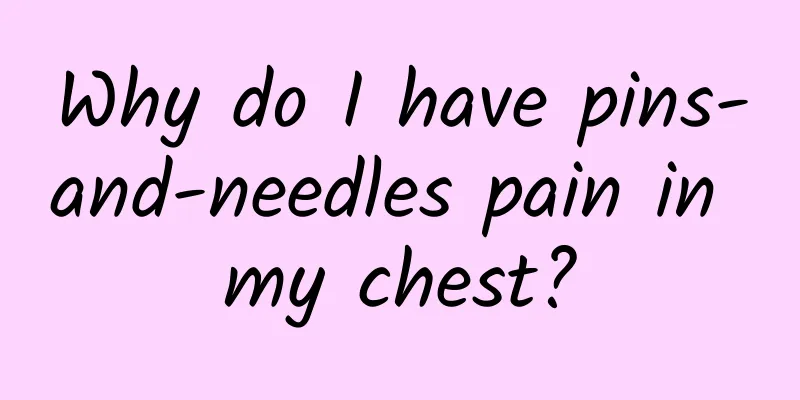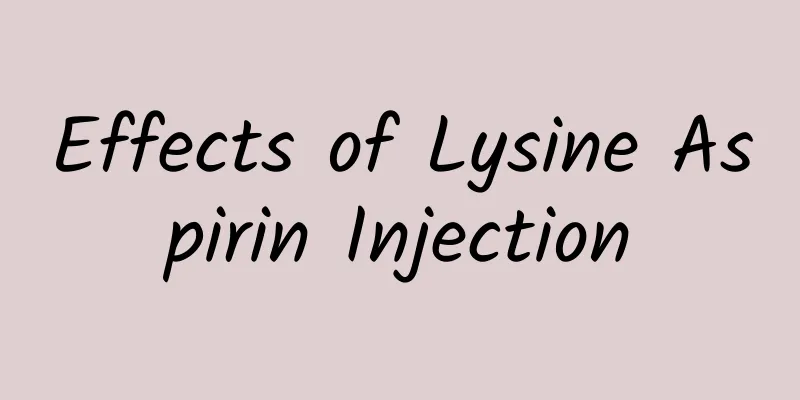Why do I have pins-and-needles pain in my chest?

|
Nowadays, more and more young people are suffering from heart disease. This is related to the high pressure in people’s daily life and work, and the phenomenon of insufficient blood supply to the heart due to long-term lack of exercise. So why does pins-and-needles pain occur in the chest? This situation is caused by myocardial ischemia, which leads to untimely oxygen supply. Pain indicates that there is a problem with the heart and immediate improvement must be made. Myocardial ischemia refers to a pathological condition in which the heart's blood perfusion is reduced, resulting in reduced oxygen supply to the heart, abnormal myocardial energy metabolism, and inability to support the normal functioning of the heart. The blood supply to the heart is not constant, but fluctuates all the time. However, this fluctuation is regulated by the body itself, which keeps the supply and demand of blood relatively constant and ensures the normal functioning of the heart. If myocardial ischemia is caused by any reason and the body's regulation cannot meet the heart's working needs, this constitutes true myocardial ischemia. Low blood pressure, reduced blood supply to the aorta, and obstruction of the coronary arteries can directly lead to reduced blood supply to the heart; valvular heart disease, changes in blood viscosity, and myocardial lesions can also reduce blood supply to the heart. There is another situation where the heart's blood supply does not decrease, but the heart's oxygen demand increases, which is a relative myocardial ischemia. The blood vessels that supply blood to the heart are called coronary arteries, and their openings are in the ascending aorta. Clinically, the main and most common cause of myocardial ischemia is coronary artery stenosis. The main cause of coronary artery stenosis is atherosclerosis. The heart disease caused by coronary atherosclerosis is commonly known as coronary heart disease. Therefore, coronary heart disease is the "culprit" of myocardial ischemia. In addition, advanced age, high blood pressure, diabetes, obesity, mood swings, smoking and drinking habits, and adverse reactions to certain drugs can all cause vascular changes leading to myocardial ischemia and intravascular thrombosis. Myocardial ischemia may have many adverse effects on the heart and the whole body. Oxygen is an essential substance for the activity of myocardial cells, and oxygen is delivered to cells through the blood. The heart has no "oxygen warehouse" and relies entirely on myocardial blood supply, so once it is ischemic, hypoxia will immediately occur. The direct consequence of hypoxia is the weakening of aerobic metabolism of myocardial cells and reduced production capacity, resulting in insufficient supply of energy necessary for cardiac activity, causing angina pectoris, arrhythmias, and decreased cardiac function. At the same time, metabolic waste cannot be removed effectively and promptly, which can easily lead to adverse effects. Ischemia, hypoxia and lack of energy will eventually affect the heart's contractile function. If 20% to 25% of the myocardium stops contracting, left ventricular failure usually occurs; if more than 40% of the myocardium fails to contract, severe cardiac pump failure will occur. If this happens suddenly, very dangerous cardiogenic shock can occur. Acute myocardial infarction is often associated with this condition. Myocardial ischemia can also impair diastolic function. The combination of poor contraction and poor relaxation can easily lead to increased ventricular filling pressure, causing pulmonary congestion, and may also cause complex metabolic disorders and abnormal myocardial electrical activity. Therefore, once myocardial ischemia occurs, the cause should be identified and treated symptomatically to avoid potential serious consequences. Warm reminder: Patients with myocardial ischemia should pay attention to a low-salt, low-fat, light diet, and eat more vegetables such as sweet potatoes, tomatoes, carrots, etc. These are foods that can improve the patient's body resistance. Drink some green tea. Tea contains a small amount of theanolide, which has a certain diuretic effect and is helpful for the treatment of myocardial ischemia in patients. Tea also contains vitamin C, which can play a good role in preventing and treating arteriosclerosis, but it should not be too concentrated. Eating some black fungus every day can help reduce blood viscosity and improve myocardial ischemia. |
<<: Fast heartbeat and chest pain
>>: My chest keeps beating when I sleep at night
Recommend
What is the reason for baby spitting up milk?
The milk that many children spit out is mostly li...
The difference between allergic rhinitis and sinusitis is the easiest to distinguish
The common difference between allergic rhinitis a...
I always choke when eating or drinking water
You should chew your food slowly when eating, whi...
How does cupping improve health?
Cupping can maintain health and prevent diseases....
Corona radiata lacunar infarction
After people reach the age of 50, various disease...
The efficacy of Huangpi wine
Huangpi wine is a health-care wine, mainly produc...
Nature and flavor of Curcuma zedoaria
Curcuma is a plant of the ginger family with a sl...
Is it good to stretch your hips while lying on your back at night?
Pay attention to your sleeping posture when you g...
How to treat neurological tinnitus?
Neurogenic tinnitus is a very common disease. It ...
What is that thin film on my arms that peels off?
The skin is the largest organ in the human body a...
Do you know the best time for cupping?
Generally speaking, the time from morning to noon...
What to do if you get angry repeatedly
Traditional Chinese medicine believes that most e...
I don't feel the bleeding in my buttocks
If we have an irregular diet for a period of time...
Second degree arteriosclerosis
Cardiovascular and cerebrovascular diseases are v...
Damage to oral mucosa
Oral mucosa is a relatively important substance i...









